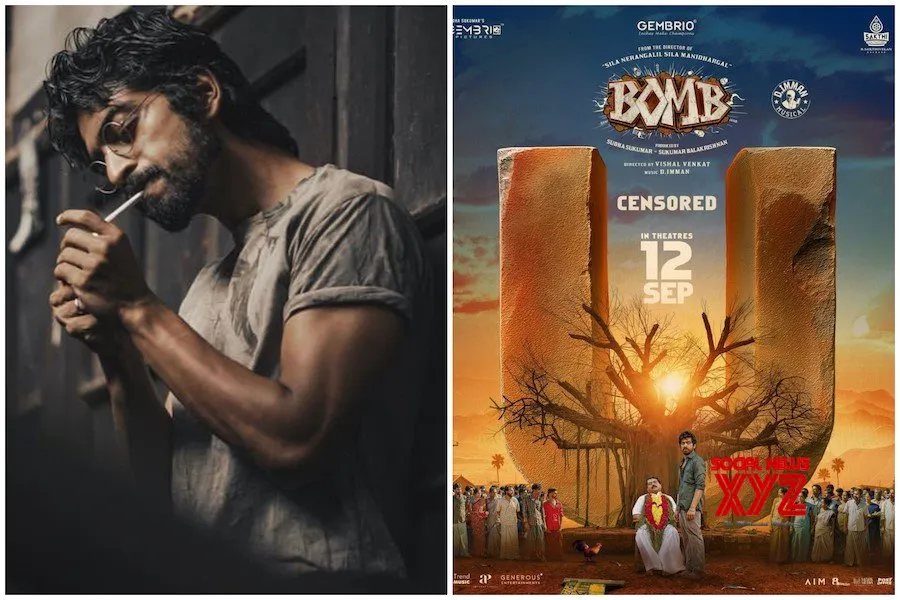
While it sometimes feels like Asia is rushing headlong into AI adoption, very few filmmakers in the region have tackled the emotional implications of the new technology, partly because sci-fi films usually come with higher costs.
But Indonesian drama Mothernet, starring Dian Sastrowardoyo, Ringgo Agus Rahman and Ali Fikry as a close-knit family coping with loss, looks at these issues from several different angles. Director Ho Wi Ding and producer Shanty Harmayn explain that, while the film has flashes of sci-fi, it’s a family drama at its core.
Scripted by Indonesia’s Gina S. Noyer, the film is set in the near future where a father, mother and 16-year-old son are adjusting to their move away from the big city. All seems well until the mother dies suddenly leaving father and son bereft and estranged from each other. When a friend offers to recreate the mother using an AI program, first the son, then the father start to drift into an unhealthy dependence on the app.
Produced by Indonesia’s Base Entertainment, co-founded by Shanty, and Dian’s Beacon Film, Mothernet is receiving its world premiere here in Busan International Film Festival’s Vision-Asia section.
Ho Wi Ding usually directs his own scripts but was drawn to the project partly because of the relationship between the father (Ringo) and son (Ali). “Quite often these days you only have one child in a family, and in Asia the father and son always have a problem communicating,” says Ho, who was born in Malaysia but has lived and worked in several different Asian countries as well as the U.S.
“The father is usually quite stern and the mother is used as a buffer for the father and son to communicate. So when the mum is gone, the father and son have to finally face each other. They’re both grieving and have to work out how to reset their relationship in the midst of all this pain.”
Ho was approached to direct the project by Shanty and producer Winnie Lau, who at the time was based in Vietnam, who felt he’d be a good fit due to some of his previous films – award-winning short Respire (Hu Xi) set in a dystopian future and 2018 feature Cities Of Last Things, which had a segment set in a near future Taipei. He’s also currently in development on a big-budget sci-fi project, House Of Stairs, for AC Independent and The Veterans.
“The first thing I thought when I read the [Mothernet] script was that we don’t need this much money to make it – which is something producers always like to hear,” says Ho. “I knew how to make it without using heavy sci-fi elements, so we decided it would have more emotional impact if we put the family drama up front and kept the science in the background.”
Ho also found this approach a welcome break from developing a big-budget sci-fi project. “The trouble with sci-fi as a filmmaker is that we sometimes get too excited about world-building and get distracted by these elements instead of trying to tell a strong story.”
Mothernet has flashes of the way we might be living the future, but these are interwoven seamlessly into a reality that looks very much like the world we live in now. While the film was mostly shot on location in Indonesia, the more futuristic elements, and some of the nature around the family’s home in the countryside, were achieved by shooting some scenes on a virtual production stage in Singapore.
Lau, an independent producer and former production executive at SK Global and Jet Tone Films, introduced the team to Singapore’s Refinery Media, which operates VP facilities, and came on board as a co-producer. The project is also the first to secure funding from a new Virtual Production Innovation Fund launched by Singapore’s Infocomm Media Development Authority (IMDA).
Shanty observes that one problem with sci-fi films is that technology is evolving so fast that it threatens to overtake your development process. She started developing Mothernet with Noyer before the pandemic, but they soon found that, first online video communication, then AI, was becoming a part of life rather than a novelty.
“At first we were going to set it in 2035, because we weren’t in the ChatGPT world yet, but then we realized it would have to be set in the near future,” Shanty says. “But in some ways, showing the audience that this way of living could be a reality now, rather than years in the future, makes the story more impactful.”
Gina comments that the isolation of the pandemic forced everyone to rethink what connection truly means, long before AI became part of daily life. “Today, in a world shaped by political and environmental crises, people turn to AI not only for answers, but also for companionship. Yet what we long for goes beyond smarter machines: it is the presence of one another,” she says.
“Mothernet reflects this longing. Because no matter the crisis, humanity thrives when we choose to be there for each other. Machines can calculate, but only humans can listen and give meaning to suffering.”
Gina’s credits also include award-winning screenplays such as Dua Garis Biru, Keluarga Cemara and Like & Share, with the latter winning best picture at Osaka Asian Film Festival.
In addition to Cities Of Last Things, which won the Platform Prize at Toronto International Film Festival, Ho’s credits include Pinoy Sunday (2010), which won best new director at the Golden Horse Awards, and Terrorizers (2021), which played in Toronto and Tokyo.
Dian is one of the Indonesia’s biggest actresses with roles in Aruna & Her Palate, Netflix series Cigarette Girl and Woo Ming Jin’s The Fox King, which just premiered in Toronto. Ringo won best actor at last year’s Indonesian Oscars for Falling In Love Like Movies and Ali starred in 24 Hours With Gaspar, which screened at Busan in 2023.
Mothernet will receive its first screening in Busan International Film Festival on September 22.



